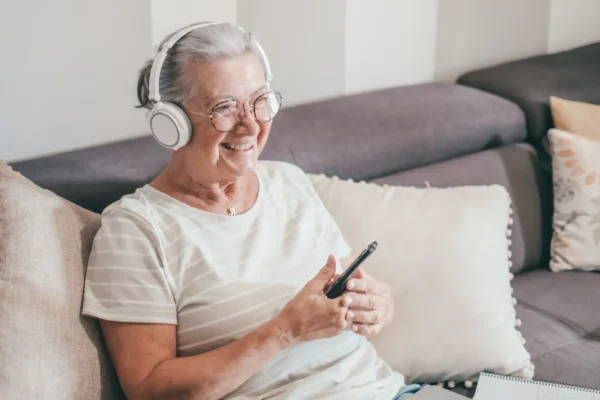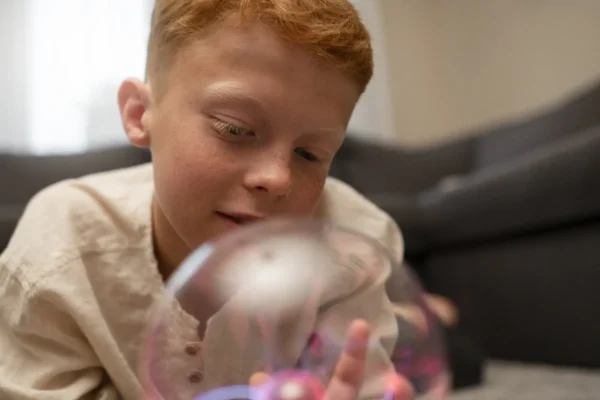What happens if the world changes today and you must find new ways to offer your professional services? In this article, neuropsychologist Andreia Geraldo brings us a Portuguese study conducted on the changes that COVID-19 brought to neuropsychology services and, specifically, how people with neurological disorders faced the process of neuropsychological rehabilitation at distance.
COVID-19 and the associated measures opened an unprecedented scenario for the development of the use of new digital technologies in the provision of neuropsychological services. Indeed, although new digital technologies were widely used before COVID-19 (Dores et al., 2016; Simons et al., 2016), the provision of distance neuropsychological services was still limited before the onset of the pandemic (Marra et al., 2020).
However, this unexpected change brought significant challenges for both professionals and individuals in rehabilitation.
The professionals’ perspective
In the case of mental health professionals, these challenges had already been explored, with the lack of necessary training and limited financial and technological resources being the most reported (Mendes-Santos et al., 2020).
The patients’ perspective
The same did not happen for patients with neurological disorders, who had to cope with an unexpected shift from in-person rehabilitation to distance neuropsychological rehabilitation.
A Portuguese rehabilitation center used NeuronUP2GO (NeuronUP home sessions) to continue providing cognitive rehabilitation during the first COVID-19 lockdown in Portugal.
Study on the process of distance neuropsychological rehabilitation
Professionals from the University of Porto, the Polytechnic Institute of Porto, and the Catholic University of Portugal conducted a study to explore the perspectives of patients who were in a rehabilitation program before COVID-19.
Objectives
The main objective of this study was to explore the perceptions that patients with neurological disorders have about online distance neuropsychological rehabilitation, specifically during the COVID-19 pandemic.
Specifically, we aimed to explore the advantages and disadvantages that patients identify in using NeuronUP2GO, and their suggestions for improving the rehabilitation process and platform, also considering their previous knowledge of other rehabilitation platforms.
The broader purpose of this study was to inform on the perspectives and suggestions of patients with neurological disorders regarding distance neuropsychological rehabilitation, so that the integration of these perspectives can enhance the services provided.
Methods
The study on the process of distance neuropsychological rehabilitation was approved by the ethics committee of the School of Health of the Polytechnic Institute of Porto (Approval Number: CE0015A).
16 patients with acquired neurological conditions attending an online neuropsychological rehabilitation program at a Portuguese rehabilitation center filled out an online questionnaire during the mandatory lockdown.
The mean age was 44.63 years (SD = 12.19; Min = 18; Max = 63), and all participants had at least four years of formal education (M = 11.38; SD = 4.23; Min = 4; Max = 17).
Regarding the clinical conditions of the patients, stroke (n = 4) and brain tumors (n = 4) were the most frequent pathologies. Other clinical conditions included traumatic brain injury (n = 1), multiple sclerosis (n = 1), fibromyalgia (n = 1), meningitis (n = 1), herpes simplex meningoencephalitis (n = 1), cerebral arteriovenous malformation (n = 1), and paramyloidosis (n = 1). One patient did not specify their diagnosis.
The time elapsed since clinical diagnosis ranged from nine to 204 months (M = 54.88; SD = 50.79).
An online questionnaire specifically for this study was developed, and a pilot test was conducted to assess its level of understanding, with good results. The instrument consisted of 24 questions about the demographic and clinical characteristics of the participants (e.g., age, clinical diagnosis), the features of the online platform used (e.g., visual appearance, motivational aspect of tasks) and information related to the neurorehabilitation process.
Study results
The main results of this study showed that participants were satisfied with this process, once they considered the number and duration of rehabilitation sessions appropriate and the outcomes of this process similar to in-person sessions.
The reported experience was quite positive, with most participants stating they had no difficulty using the platform independently. They rated its navigation system as quite intuitive and found the visual aspect very appealing, with tasks being highly motivational.
Furthermore, the relationship with the mental health professional was not affected by the physical distance imposed by mitigation measures.
Advantages and disadvantages
The advantages of using this platform during the COVID-19 lockdown were mentioned, with the most common being the ability to maintain rehabilitation sessions during the pandemic. Geographic and time flexibility and platform usability were also mentioned.
The main disadvantage mentioned was the lack of synchronous contact with the neuropsychologist.

Suggestions
Suggestions were explored to enhance processes of cognitive rehabilitation at distance, among which emerged the increase of synchronous online group activities and synchronous contact with the neuropsychologist.
Full Study
The complete study can be read online here, where more contributions from individuals with neurological disorders on improving processes of remote neuropsychological rehabilitation can be found. As well as the advantages and disadvantages of this process and the use of the NeuronUP platform.
To our knowledge, this is the first study in Portugal analyzing patients’ perspectives on cognitive rehabilitation at distance, and the results highlight its potential!
References
- Dores, A. R., Barbosa, F., Guerreiro, S., Almeida, I., & Carvalho, I. P. (2016). Computer-based neuropsychological rehabilitation. In M. M. Cruz-Cunha, I. M. Miranda, R. Martinho, & R. Rijo (Eds.), Encyclopedia of E-health and telemedicine (pp. 473–485). Medical Information Science Reference.
- Geraldo, A., Dores, A.R., Carvalho, I.P., Guerreiro, S., Castro-Caldas, A., & Barbosa, F. (2022). At-distance neurocognitive rehabilitation during COVID-19 pandemic: a first glance of patients’ perspectives about the process and an online platform. Applied Neuropsychology: Adult.
- Marra, D., Hoelzle, J., Davis, J., & Schwartz, E. (2020). Initial changes in neuropsychologists clinical practice during the COVID-19 pandemic: A survey study. The Clinical Neuropsychologist, 34(7-8), 1251–1266.
- Mendes-Santos, C., Weiderpass, E., Santana, R., & Andersson, G. (2020). Portuguese psychologists’ attitudes towards internet interventions: An exploratory cross-sectional study. JMIR Mental Health, 7(4), e16817.
- Simons, D., Boot, W., Charness, N., Gathercole, S., Chabris, C., Hambrick, D., & Stine-Morrow, E. (2016). Do “brain-training” programs work? Psychological Science in the Public Interest, 17(3), 103–186.




 Jesús Cortes: “This study can help identify in advance people at risk of developing cognitive impairment”
Jesús Cortes: “This study can help identify in advance people at risk of developing cognitive impairment”
Leave a Reply